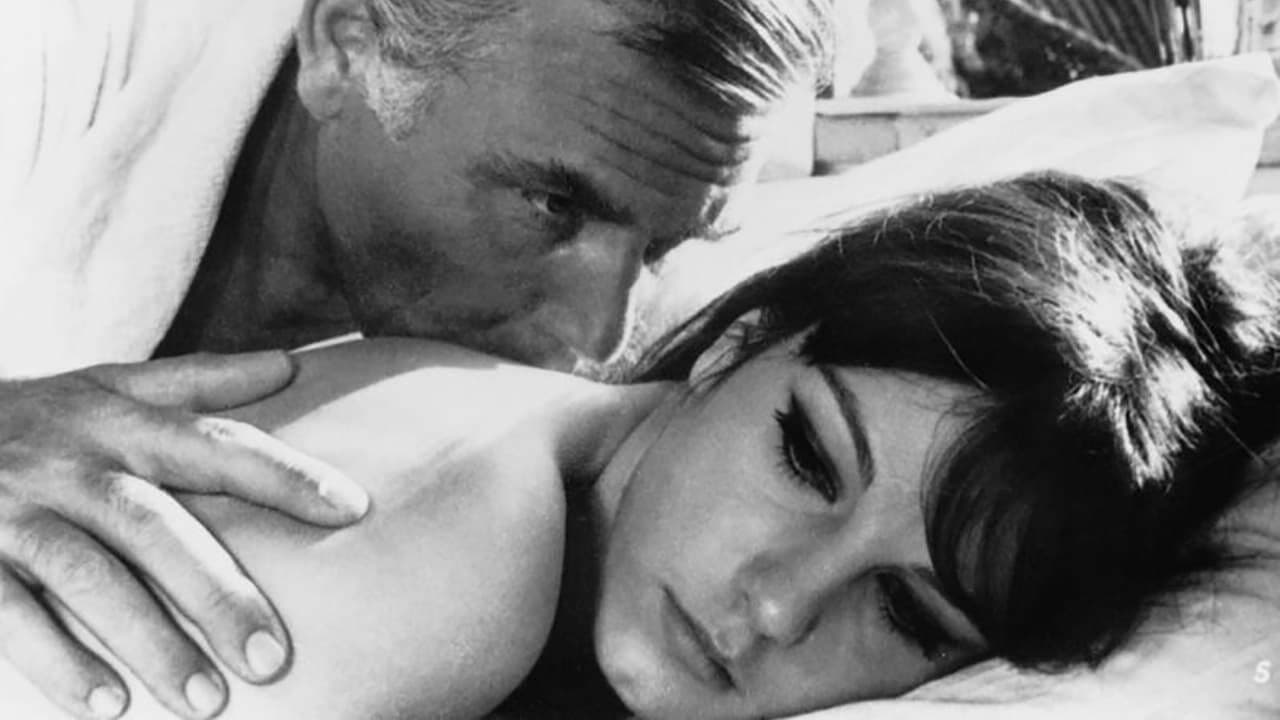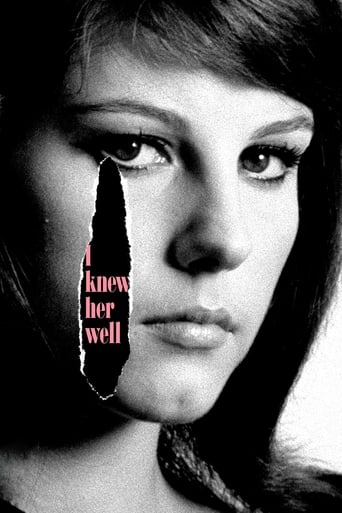2hotFeature
one of my absolute favorites!
Nessieldwi
Very interesting film. Was caught on the premise when seeing the trailer but unsure as to what the outcome would be for the showing. As it turns out, it was a very good film.
Keira Brennan
The movie is made so realistic it has a lot of that WoW feeling at the right moments and never tooo over the top. the suspense is done so well and the emotion is felt. Very well put together with the music and all.
Kirandeep Yoder
The joyful confection is coated in a sparkly gloss, bright enough to gleam from the darkest, most cynical corners.
manicmotionman
There is a scene from I Knew Her Well between Adriana (Stefania Sandrelli) and The Writer (Joachim Fuchsberger) that says a lot about the film:The Writer: "Trouble is, she likes everything. She's always happy. She desires nothing, envies no one, is curious about nothing. You can't surprise her. She doesn't notice the humiliations, though they happen to her every day. It all rolls off her back like some waterproof material. Zero ambition. No moral code. Not even a whore's love of money. Yesterday and tomorrow don't exist for her. Even living for today would mean too much planning, so she lives for the moment. Sunbathing, listening to records, and dancing are her sole activities. The rest of the time she's mercurial and capricious, always needing brief new encounters with anyone at all... just never with herself." Adriana: "I'm Milena, right? Is that what I'm like? Some sort of dimwit?"The Writer: "On the contrary. You may be the wisest of all."I couldn't encapsulate the brilliance of this incredibly well directed character essay any better.
zetes
Kind of a smaller version of La Dolce Vita with a female lead, this slice of 1960s Roman life is great in its own right. Stefania Sandrelli (probably best remembered as the woman who shared a sexy dance with Dominque Sanda in The Conformist) plays an aspiring actress and model who spends her nights partying her ass off and her mornings alone. The plot is pretty simple and pretty predictable, but director Pietrangeli shoots the film in a very experiential style - it feels like you're partying alongside Sandrelli, and it's just a really wonderful experience. Sandrelli herself is outstanding. It's a character that could come off as a cliché, but she plays her so knowingly and passionately. It's very, very easy to fall in love. The film is stuffed full of wonderful '60s pop songs (the only ones I recognized were by Millie Small, a Jamaican ska artist best known for her hit "My Boy Lollipop"), tremendous clothes and hairdos, and that crisp 1960s black and white. A must-see for anyone who loves the Italian films of this era.
Bob Taylor
The Criterion release has been prepared with the loving care we've become accustomed to from this company; if only the film had been more deserving of this fine treatment. It's sub-Fellini: you wait for a scene to develop with a certain verve, excitement--and you're so often let down by the plodding approach of Pietrangeli. This man was no master, take my word for it. The scene between Baggini, Roberto and Cianfanna, meant to be so humiliating for Baggini, comes off, but barely. There's a limpness and a rushed quality in the handling that is surprising in a veteran film maker.I do enjoy Sandrelli in everything she does but I reserve my praise for her work in The Conformist, where she worked for a master, Bertolucci. As Baggini, Ugo Tognazzi is his usual superb self.
mackjay2
Ironically titled, beautifully shot and well-acted, this is a real 'sleeper' from late in the Golden Age of Italian cinema. Stefania Sandrelli perfectly embodies the naive girl from the provinces who wants to be a star. We never know what she can do well, apart from be charming and look terrific. But she believes there is a place for her in the firmament of the entertainment industry. Adriana gets to live only on the edge of the life she thinks she wants (nice apartment, clothes, wigs, parties, making money from sexual favors or modeling). From the start, she is taken advantage of by 'agents' or others who claim to be helping her. The numerous men she encounters are mostly ciphers themselves. Their only advantage is that they understand the ruthless nature of their world. Adriana is just their latest victim. One charmer skips out in the early morning from a hotel encounter, leaving Adriana stuck with the bill. Another, after a sexual episode, asks her to call another girl for him. In a brilliantly cringing scene, poor Adriana is humiliated in front of friends, as her long-awaited 'film debut' only serves to use her for comic fodder.The film uses flashback to fill in Adriana's past: she was a normal, if very pretty, girl whose family has already nearly forgotten her. Like many of her kind, she craves the "love" that stardom should bring. As often with serious Italian film, the outcome is pessimistic. Director Pietrangeli paces the film well and integrates the brief flashbacks to telling effect. Locations are well-used and often beautifully photographed. The film can occasionally remind a viewer of Robert Bresson's work: much faster paced, and with a higher energy level, but with a similar outlook on youth and the harshness of contemporary life. I'd go as far to say if this film had been directed by Bresson, it would be far better known. The international view of Italian cinema at the time was dominated by Fellini, Antonioni and a few others, while Pietrangeli, Monicelli and many fine film makers remain to be re-discovered. Here is a great place to start that re- discovery.

